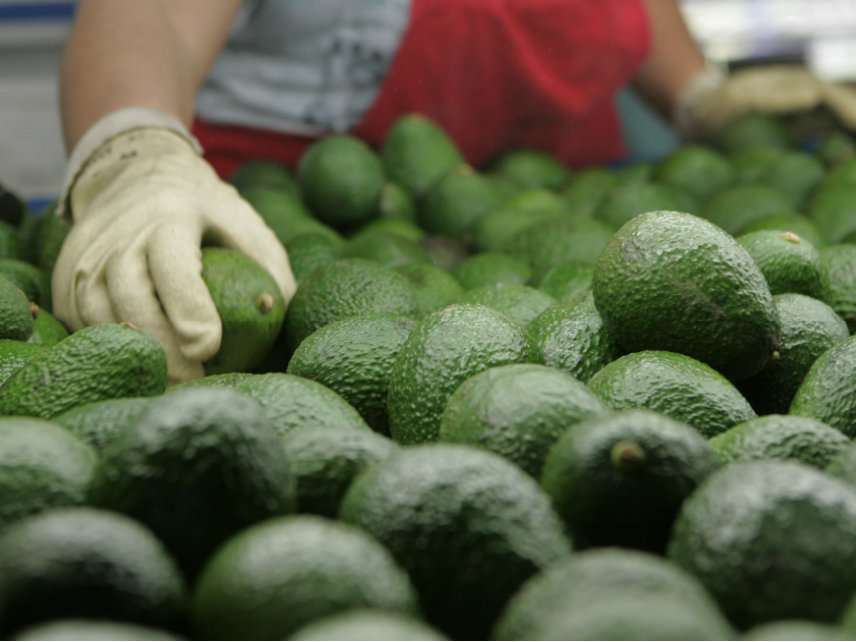If Trump Closes the Mexican Border, America Will Run Out of Avocados in 3 Weeks
Oh, and the U.S. auto industry wouldn't even last that long.

If President Donald Trump follows through on what can only be described as a completely unhinged threat to close the U.S.-Mexico border, Americans would run out of guacamole about two weeks after the last American auto plant shuts down.
Those two consequences—one purely cosmetic, the other deeply devastating—do a pretty good job of summing up the importance of cross-border trade between the U.S. and Mexico. Without really ever thinking about it, millions of Americans depend on that trade for everything from the cars they drive to the food they eat—and a lot more.
America's strategic avocado supply would be exhausted in just three weeks if imports from Mexico were stopped, according to NBC News.
"You couldn't pick a worse time of year because Mexico supplies virtually 100 percent of the avocados in the U.S. right now," Steve Barnard, president and chief executive of Mission Produce, the largest avocado supplier in the world, told NBC News. "California is just starting and they have a very small crop, but they're not relevant right now and won't be for another month or so."
America gets nearly half of its avocado supply from Mexico, and replacing that market share with imports from Peru or elsewhere would be difficult on short notice. And the number of avocados currently growing in California won't magically double in the next month before they are ready to be harvested.
Meanwhile, the 2.4 million Americans working in auto manufacturing would be facing almost immediate layoffs.
FALLOUT ALERT: The entire US auto industry would shutdown within a week if President Trump goes ahead with his pledge to close the US-Mexican border because automakers rely on parts imported from Mexico, according to Kristin Dziczek of the Center for Automotive Research.
— Jeff Zeleny (@jeffzeleny) April 2, 2019
While many other industries also rely on U.S.-Mexico trade, the auto industry is particularly sensitive to disruptions at the border because of international supply chains established in the decades since the signing of the North American Free Trade Agreement. Thanks to a provision in NAFTA that allows car parts to cross the border multiple times but get taxed just once, the parts that are assembled to build a single car seat might zig-zag their way between the two countries several times—as Bloomberg demonstrated in a useful 2017 infographic—before being installed in a sedan built in South Carolina or a truck in Michigan. Shutting the border would put an end to all that.
Those cross-border supply chains have bolstered manufacturing jobs on both sides of the Rio Grande—there's been a 50 percent increase in American auto-making jobs since 2011, according to the American Automotive Policy Council, and greater job prospects in Mexico have been credited with slowing illegal immigration.
The interdependence of American and Mexican markets—to say nothing of America's demand for avocado toast—should give Trump $600 billion worth of reasons to avoid closing the border. That's how much trade occurs every year between the two countries, and about $137 billion of that total is food. Not just avocados, but also tomatoes, other fruits, and liquor.
Closing the border would not be, as Trump says, a "profit-making operation." Quite the opposite. Slamming the border shut would disrupt supply chains, destroy jobs, and ensure that many businesses and people no longer make a profit or a living. It could send both countries into an economic tailspin. And it would mean no more guacamole, too.


Show Comments (260)